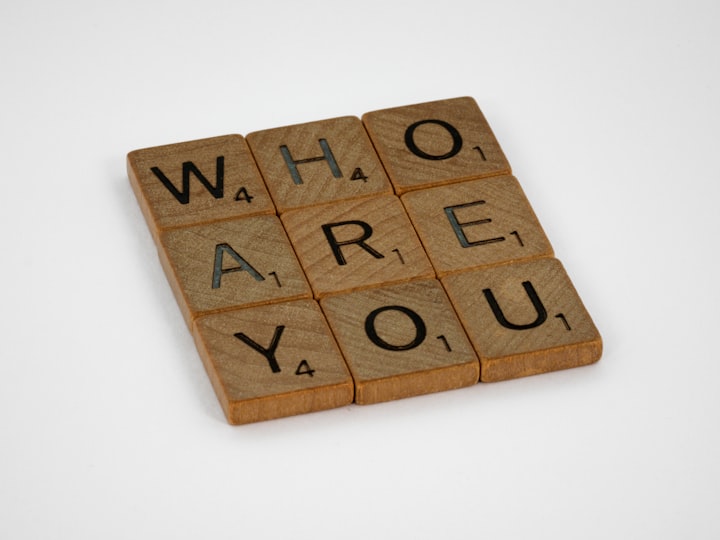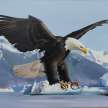A Guide to Finding Yourself
self love is foremost.

The best and most significant experience of our lives is finding who we truly are. However, so many of us stroll around either not actually knowing or paying attention to a dreadful internal pundit that gives us every one of some unacceptable thoughts regarding ourselves. We erroneously consider self-understanding egocentrism, and we continue without posing the main inquiry we'll at any point inquire: Who am I truly? As Mary Oliver put it, "how is it you intend to manage your one wild and valuable life?"
Ending up may seem like an intrinsically narcissistic objective, however it is really an unselfish cycle that is at the base of all that we do throughout everyday life. To be the most important individual to our general surroundings, the best accomplice, parent and so on, we need to initially know what our identity is, the thing that we esteem and, in actuality, what we have to bring to the table. This individual excursion is one each individual will profit with taking. It is a cycle that includes separating – shedding layers that don't serve us in our lives and don't reflect who we truly are. However, it additionally includes a gigantic demonstration of developing – perceiving who we need to be and energetically approaching satisfying our remarkable predetermination – whatever that might be. It's a question of perceiving our own force, yet being open and helpless against our encounters. It isn't something to fear or stay away from, censuring ourselves route, yet rather something to search out with the interest and empathy we would have toward an entrancing new companion. Considering these standards, the accompanying aide features seven of the most generally valuable strides to this extremely singular experience.
1. Make sense of your past
To reveal what our identity is and why we act the manner in which we do, we need to know our own story. Being fearless and able to investigate our past is a significant venturing stone making a course for getting ourselves and becoming who we need to be. Examination has shown that it isn't only the things that happened to us that characterize who we become, yet the amount we've sorted out what's befallen us. Unsettled injuries from our set of experiences advise the manners in which we act today. Studies have even shown that biography lucidness has a "genuinely huge relationship to mental prosperity." The more we structure what Dr. Daniel Siegel discusses as a "intelligible account" of our lives, the better capable we are to make careful, cognizant choices in our current that address our actual selves.
The perspectives and climate we experienced childhood in have a weighty hand on how we go about as grown-ups. As Dr. Robert Firestone, creator of The Self Under Siege, expressed, "As youngsters, individuals not just relate to the guards of their folks yet in addition will in general join into themselves the basic or threatening mentalities that were coordinated toward them. These damaging individual assaults become a piece of the youngster's creating character, shaping an outsider framework, the counter self, discernable from the self-framework, which meddles with and goes against the continuous indication of the genuine character of the person."
Agonizing early educational encounters frequently decide how we characterize and guard ourselves. To put it plainly, they twist us in a bad way, affecting our conduct in manners by which we are not really mindful. For instance, having a cruel parent might have made us feel more protected. We might grow up continually feeling on the guard or impervious to attempting new difficulties inspired by a paranoid fear of being criticized. It's not difficult to perceive how conveying this vulnerability with us into adulthood could shake our feeling of character and breaking point us in various regions. To break this example of conduct, it's important to recognize what's driving it. We ought to consistently take a gander at the wellspring of our most self-restricting or foolish inclinations.
At the point when we attempt to conceal or stow away from our past encounters, we can feel lost and as we don't actually have any acquaintance with ourselves. We might make moves naturally without inquiring as to why. In his book Mindsight: The New Science of Personal Transformation, Dr. Siegel composed of a connection with his child, wherein he'd blew his top. Subsequent to pondering the episode a bit later, Dr. Siegel understood that his enthusiastic upheaval had more to do with sentiments he'd had as a youngster toward his sibling than with his view of his child today. He composed of the experience, "I understand indeed the number of layers of importance our cerebrum contain, and how rapidly old, maybe neglected, recollections can arise to shape our conduct. These affiliations can make us follow up on programmed pilot."
By reflecting on the past, using a technique called mindsight, “a kind of focused attention that allows us to see the internal workings of our own minds,” Dr. Siegel was able to make sense of his experience, then talk to his son about what happened and repair the situation. “With mindsight I was able to make use of the reflections that arose from that conflict to arrive at more clarifying insights into my own childhood experiences. This is how the most challenging moments of our lives can become opportunities to deepen our self-understanding and our connections with others.”
By engaging in this type of thinking and being willing to face the memories that arise, we gain invaluable insights into our behavior. We can then start to consciously separate from the more harmful influences from our history and actively alter our behavior to reflect how we really think and feel and how we choose to be in the world.
2. Differentiate
Separation alludes to the way toward endeavoring to foster a feeling of ourselves as free people. To get ourselves and satisfy our novel predeterminations, we should separate from damaging relational, familial and cultural impacts that don't serve us. "To have a free existence, an individual should isolate him/herself from negative engraving and stay open and defenseless," composed Dr. Firestone. In his work with many people battling with this precise cycle, he's created four fundamental strides of separation.
Stage 1: Break with destructive disguised perspectives, i.e., basic, antagonistic mentalities toward self as well as other people.
Stage 2: Separate from antagonistic character qualities absorbed from one's folks.
Stage 3: Relinquish examples of safeguard shaped as a transformation to agonizing occasions in one's adolescence.
Stage 4: Develop one's own qualities, goals, and convictions as opposed to consequently tolerating those one has grown up with.
About the Creator
Iqra Mukhtar
I am a student of English Literature.I love to portray my own reflections into the beauty of words for others.
I just love to explore different things along with a dream to explore the world.
I only make others familiar with my thoughts.






Comments
There are no comments for this story
Be the first to respond and start the conversation.